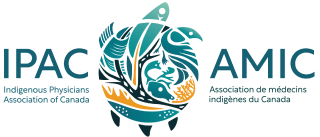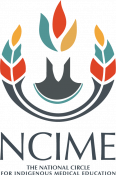Land acknowledgement
The Medical Council of Canada (MCC) is situated on the territory of the Anishinaabe Algonquin Nation. As an organization committed to improving health outcomes, the MCC recognizes the historical and ongoing harms caused by colonization and systemic racism, particularly within the health care system. We are dedicated to ensuring that all practising physicians in Canada possess the competencies needed to address these legacies. In partnership with Indigenous communities, we strive to advance Indigenous health equity, foster healing, and work towards building a health care system for all.
On the pathway to licensure and beyond
The MCC is the only organization in Canada that provides independent, objective assessments to ensure all practising physicians in Canada have the skills, knowledge, and professional behaviours required to meet the highest standards of patient safety.
The Canadian Standard, of which the MCC examinations are an integral part, is similar to the models of other professional disciplines, in which standard requirements must be met to receive a license. By providing key examinations and assessments of physician competence on the pathway to licensure in Canada, the MCC helps ensure the high level of medical care found in Canada.
The MCC collaborates with partners, including medical regulatory authorities and medical schools across Canada, to ensure that our examinations are rigorous, defensible, and address the evolving health care environment in support of safe care for people across Canada. The MCC also ensures that physicians who are trained outside of Canada and wish to practice here meet the required standards.
Annually, the MCC:
- Engages close to 30,000 students, graduates, and physicians as part of their pathway towards the practice of medicine in Canada. This includes the assessment of medical students through its qualifying examination in Canada as well as in more than 80 other countries in person and via remote proctoring.
- Assesses more than 1,500 internationally trained candidates who wish to enter the Canadian residency program through the National Assessment Collaboration (NAC) Examination.
- Oversees the NAC Practice-Ready Assessment (PRA) program, which acts as an additional pathway to licensure for international medical graduates.
- Assesses more than 200 international medical graduates who have applied for the NAC PRA program through the Therapeutics Decision-Making Examination.
- Supports the professional development of more than 400 practicing physicians through the multi-source feedback MCC 360 program.
The MCC is also an expert at verifying and securely storing medical credentials and offers candidates and physicians a variety of data management services that are required on their path to licensure and beyond. This work includes the maintenance of the National Registry of Physicians, an integrated and centralized source of data on physicians in Canada.
Vision
Our vision is to ensure that physicians have the competencies to support safe, accessible health care in Canada.
Mission
We are the trusted keeper of physician credentials and assessor of a physician’s general competencies to inform safe licensure decisions in Canada.
Strategic objectives
The organization strives to fulfill its role by pursuing the following five strategic objectives.
- We will serve physician licensure decisions through excellence in programs of assessment.
- We will assist international medical graduates (IMGs) as they navigate to practising as physicians or in other medical roles in Canada.
- We will enable health human resource planning with others by managing physician practice data in our registries.
- We will strengthen our position and collaboration within the system through strategic alliances and enhanced government relations.
- We will sustainably manage our financial, technological, and human resources for organizational effectiveness.
Inclusivity
Our commitment to diversity and inclusion
The Medical Council of Canada (MCC)’s strong commitment to diversity and inclusion is reflected in our recently updated corporate values, which are part of our strategic plan. Our team fosters belonging by welcoming and valuing people with diverse backgrounds and incorporating their experiences and perspectives into our work.
As proud members of the Canadian Medical Forum, we join our partners in a shared commitment to eliminate anti-Black racism and anti-Indigenous racism and promote Truth and Reconciliation in health .
We recognize the important role that diversity and inclusion play in ensuring safe and accessible health care for everyone in Canada.
The MCC’s efforts include:
- Continually learning and improving our diversity and inclusion
- Collaborating with structurally marginalized groups and leaders in health care
- Working diligently to remove any inaccurate and stigmatizing content from our exams, preparatory products, and other materials
- Revisiting the MCC Examination Objectives to include Black health, Indigenous health, and 2SLGBTQQIA+ health
- Actively assisting international medical graduates and internationally trained physicians on their route to licensure in Canada
- Promoting free resources developed by structurally marginalized groups to help candidates understand and develop cultural humility and culturally safe care
- Better recognizing and valuing the diverse voices and experiences of international medical graduates in our governance
- Continuing to strengthen our allyship with the National Circle for Indigenous Medical Education
Organizations the MCC is working with today
The National Circle for Indigenous Medical Education
The NCIME is a partnership between the Indigenous Physicians Association of Canada, the Association of Faculties of Medicine of Canada, the College of Family Physicians of Canada, the MCC, and the Royal College of Physicians and Surgeons of Canada.
The NCIME was created to implement Indigenous-led work streams that will reform Indigenous medical education and contribute to the delivery of culturally safe care. This partnership was designed to ensure Indigenous Peoples’ access to care is high quality, culturally safe, and free of racism, which begins with Indigenous-led systemic change in how medical professionals are instructed and evaluated.


